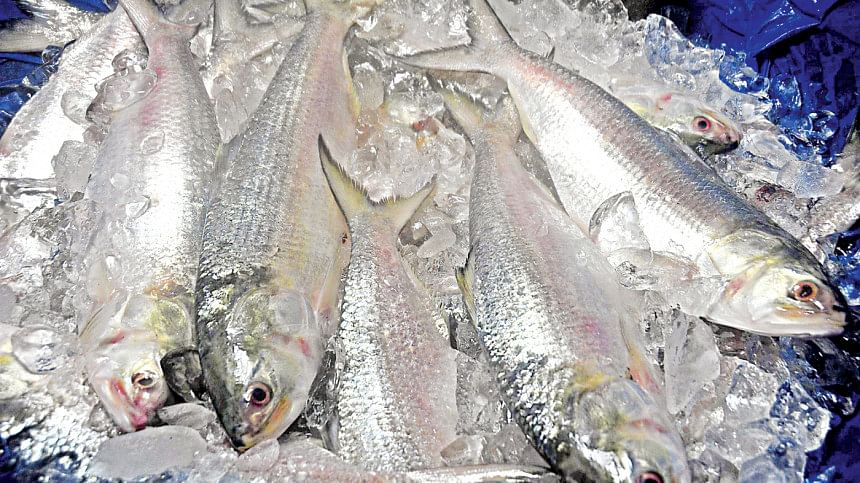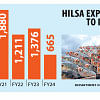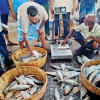Hilsa export to India allowed for ‘greater interests’

The decision to allow 3,000 tonnes of hilsa to be exported to India from Bangladesh ahead of the upcoming Durga Puja festivities was made considering the greater interests of the country, according to Salehuddin Ahmed, commerce adviser to the interim government.
Bangladesh usually exports hilsa to India ahead of Durga Puja each year as a gesture of goodwill.
However, on August 11, Fisheries and Livestock Adviser Farida Akhter told journalists that the interim government wanted to increase the supply of the national fish in the domestic market, adding that she did not approve of sending hilsa abroad without meeting the needs of the country's people.
In another turn of events on Saturday, the commerce ministry said in a statement that the government would allow 3,000 tonnes of hilsa to be exported, referring to a letter from the Ministry of Foreign Affairs.
Ahmed added that 3,000 tonnes accounted for less than 0.5 percent of the total hilsa production, which stood at more than 5.30 lakh tonnes last year.
There are emotional entanglements and friendly relations between Bangladesh and India, the adviser said. For instance, India has already lowered the duty on exports of onions.
"Moreover, hilsa is smuggled out of Bangladesh to India," he said, adding that hilsa export would also bring in some US dollars.
In the fiscal year 2023-24, Bangladesh exported 664.86 tonnes of hilsa to India, earning $7.71 million, according to data from the Department of Fisheries.
Replying to a query about whether prices of the popular fish may increase, the adviser said the price of hilsa is normally high in the markets and a section of traders usually increases the price.
However, the decision to export hilsa to India on the occasion of Durga Puja has been taken after a lot of thought and it will have a lasting positive impact, he said, adding that Bangladesh wanted to continue being a good neighbour.
Speaking on the government's decision, Farida said yesterday: "The decision was given by the Ministry of Commerce in response to the request. The Ministry of Fisheries and Livestock has nothing to do with this decision. We still have the same commitment as before: we want to ensure the availability of hilsa for the people of Bangladesh."
Salehuddin, also the finance adviser, was questioned by journalists about the hilsa issue after holding a meeting with Jayendu De, the International Monetary Fund's resident representative for Bangladesh, Marie Masdupuy, French ambassador to Bangladesh, and Park Young Sik, the South Korean ambassador to Bangladesh, at the secretariat in Dhaka yesterday.
The finance adviser said a team from the IMF would come to Dhaka to offer support to the government centring reforms.
He also said the Korean government wants to give a soft loan to Bangladesh for different projects, adding that Korean loans are one of the softest loans with an interest rate of just 0.5 percent.
France also assured that it would give support to Bangladesh for different technological projects.
Salehuddin added that the $1 billion loan pledged by the French government during President Emmanuel Macron's visit last year may need to be renegotiated as the interim government has other priorities.
He added that the International Fund for Agricultural Development would also support Bangladesh.

 For all latest news, follow The Daily Star's Google News channel.
For all latest news, follow The Daily Star's Google News channel. 






Comments